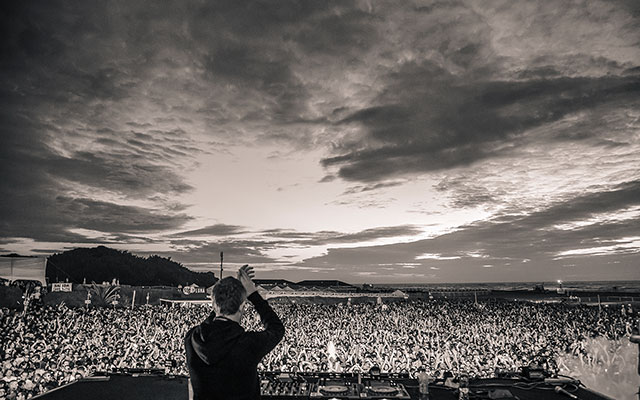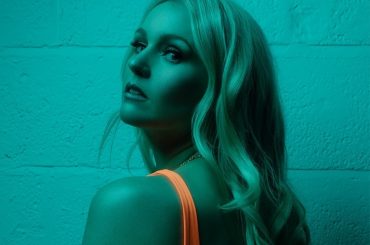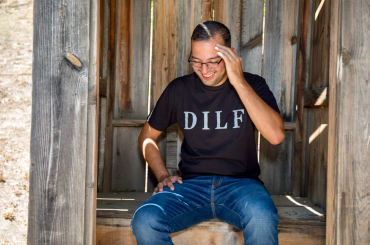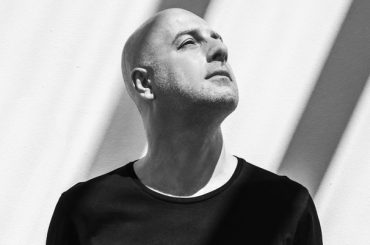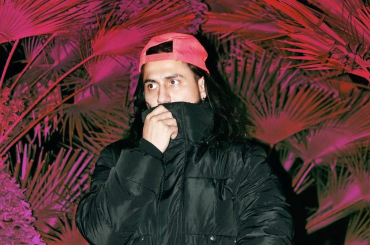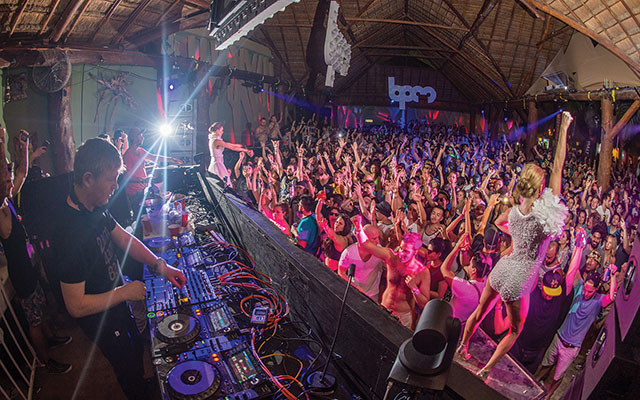
Digweed: We attracted a different crowd. It just got bigger and bigger and bigger. I can’t really put my finger on it; I think it was right time, right place. The club was amazing. We’d play from 12 a.m. to 10-11 the next day, and it just became one of those go-to clubs that, if you were a fan and you wanted to hear Sasha and me play, that’s where you would go. It almost became this sort of magical place that you could hear us play for 12 hours on the best sound system in the world in New York! It just ticked all these boxes. It was a vibe, and it was incredible.
DJ Times: It remains mythic.
Digweed: I think because it was before social media and camera phones—you can’t find videos of Twilo if you try. People were just there dancing! They weren’t texting people. For the first few years, the DJ booth was in the corner, and no one even looked at the DJ—they looked at each other. To this day, it was the best club experience I’ve ever had. They just got everything right.
DJ Times: From your view, how has New York nightlife changed and what sort of state is it in now?
Digweed: After Twilo and then Tunnel got shut down, there was a clear out there. Everyone kind of went, and then they opened Crobar, which—at the time—was sort of like the wind had been taken out of the clubbing sails of New York of the time. No one really wanted a big club; it just really didn’t seem to work. Whereas, I think if Crobar was open now, you’d be filling it with all the DJs. At the time, it kind of came and didn’t really click.
DJ Times: And now?
Digweed: I play Output regularly. I love their policy: no VIP, no bottle service, no cameras. They try and make it about the experience of just going there to dance and have a good time! That’s got to be applauded, really, because it would be an easy decision to start doing tables upstairs. They just want people to go there to enjoy the music and the DJs, and I think they’ve stayed around is because they’re doing something other clubs aren’t. It’s a tough business running a nightclub: getting your music policy right especially when you’ve got so many choices in New York.
DJ Times: It feels like the New York clubber is a very different beast than those of other places. What characterizes the crowds there?
Digweed: I think they’ve got a lot of choices over the last few years in terms of clubs. You’ve had Space [Ibiza NY] open, Flash Factory—it’s one of those things where they’re spoiled for choice. Going back to when Twilo was around, there was a lot of choice then, but it was promoted all through word-of-mouth. Now it’s all hyped. Quick, get a ticket, it’s selling out! Everything’s social media; everything’s Facebook. It’s pushed in a different way, so sometimes now, it’s like, Who’s going? We’re all going! There’s a hype machine. With Twilo, I don’t think they even did advanced tickets. You wanted to go, you had to stay in line! You had to get there at 9 or 10 at night and queue up.
DJ Times: It feels like a business model has come to New York and that’s what everyone’s focused on.
Digweed: Now you’ll always get people asking, “What time do you play?” Don’t just show up when I’m playing and leave when I’m done. There’s other DJs playing; go and hear them! Go to the club to experience the night, don’t just go to a concert to turn up, see the main act, and leave. That’s the thing – you’ve got to make the club. Clubs need to have that friends-and-family [vibe]. You should see the same people every month because they’re fans. It’s about supporting it, and maybe there isn’t as much of that now because they’ve got so many choices.
DJ Times: You and Sasha are reuniting for a gig together at The Social in the U.K. later this year. How did that idea hatch?
Digweed: Basically, we met in Japan last year and spoke about doing a possible date. Nic Fanciulli runs The Social, and said, “Look, I’d really like you guys to play.” We thought about it. We hadn’t played together in six years, so it would be a nice time to do it. We snuck in a gig at Ministry of Sound for my Bedrock anniversary party on Easter back in April, and kind of set the Internet a bit crazy. It was nice because it was an organic way of doing something, rather than announcing it. We just played, and people were like, “Wow, I’m in the club and now Sasha is playing.”
DJ Times: It was recreating the magic of the clubbing experience of the past.
Digweed: It would’ve been easy for us to announce what was happening the day before, but the club would’ve been fuller than we wanted it. What we did was make something really creatively feel special for the people that were there. The night was great and, suddenly at 4 a.m., it happened. It was a brilliant way to play social media. We didn’t put anything out; we just let the fans do it. It was nice! Normally, you get a PR person, let’s get this planned, etc. We didn’t do any of that. It was an organic thing, the crowd did their thing, and that was it.
DJ Times: What led to the original formation of your label Bedrock?
Digweed: I kept getting tracks given to me while I was on the road travelling by DJs and producers, saying, “Here is my unsigned track. Can you think of a label to release it on for me?” I was also disillusioned with the labels out there for my own releases, so it made total sense to start my own label up and act as a platform for new and exciting artists. That was back in 1998, and we have not looked back since.
DJ Times: How has it evolved over the past 17 years?
Digweed: We have seen a lot of changes, with the biggest impact being when the vinyl sales completely bottomed out and the digital side of things had not really established itself properly, with the likes of Beatport. There was a moment when we wondered where this was going, as illegal downloads were killing us and vinyl sales had dropped by an incredible amount. Luckily, we held our nerve and slowly and surely figured out how to make it work.
DJ Times: What do you think has been the secret to keeping it fresh and relevant over time?


